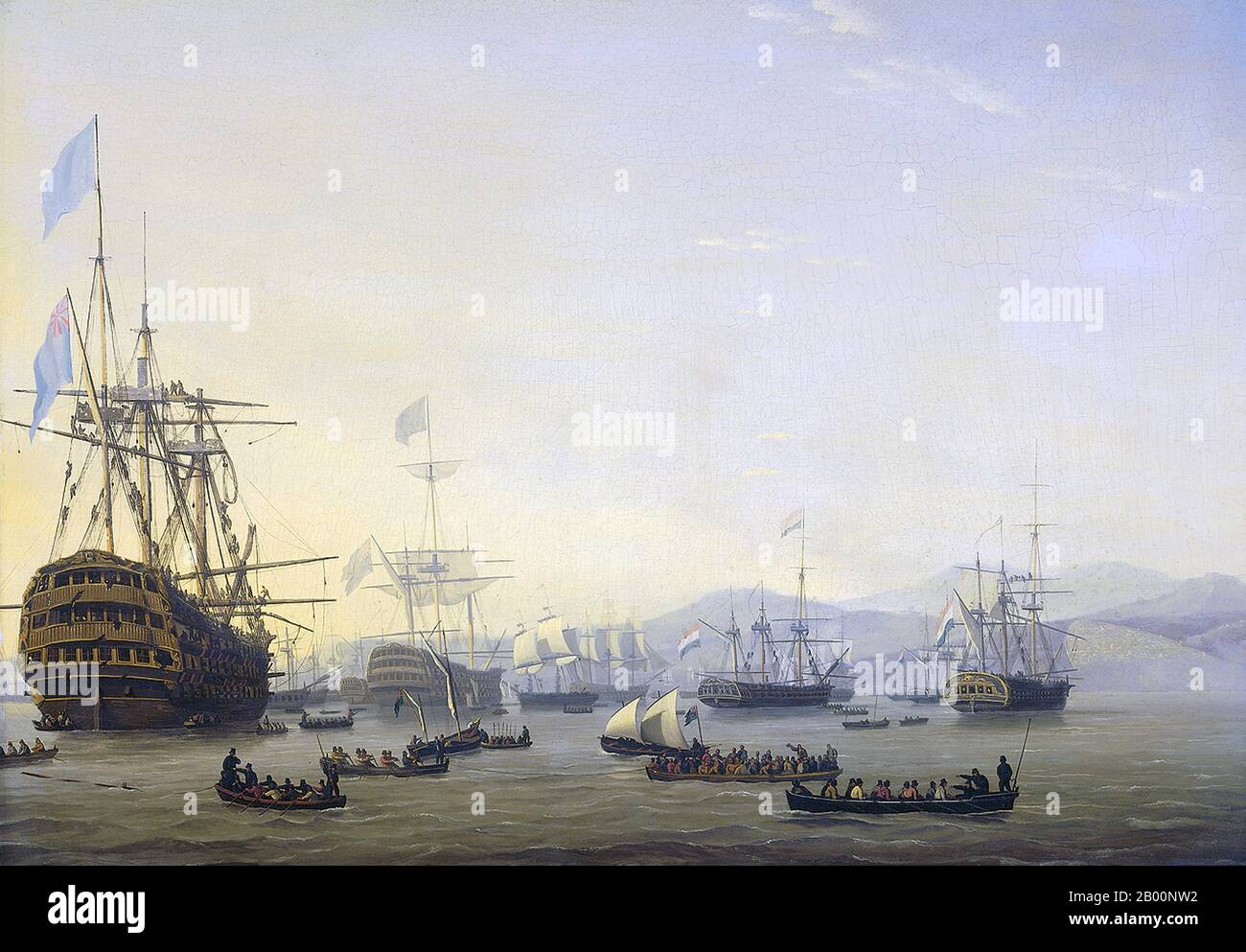Algeria/Netherlands: 'Council of War Aboard the ‘Queen Charlotte‘ Held by Lord of Exmouth before the Bombardment of Algiers, August 26, 1816'. Colour on panel painting by Nicolaas Baur (1767-1820), 1818. The Bombardment of Algiers (27 August 1816) was an attempt by Britain to end the slavery practices of the Dey of Algiers. An Anglo-Dutch fleet under the command of Admiral Lord Exmouth bombarded ships and the harbour defences of Algiers. It was partially successful as the Dey of Algiers freed around 3,000 slaves following the bombardment and signed a treaty against the slavery of Europeans.

Image details
Contributor:
CPA Media Pte Ltd / Alamy Stock PhotoImage ID:
2B00NW2File size:
48.7 MB (1.7 MB Compressed download)Releases:
Model - no | Property - noDo I need a release?Dimensions:
4950 x 3440 px | 41.9 x 29.1 cm | 16.5 x 11.5 inches | 300dpiDate taken:
16 July 2010Photographer:
Pictures From HistoryMore information:
This image could have imperfections as it’s either historical or reportage.
The Bombardment of Algiers (27 August 1816) was an attempt by Britain to end the slavery practices of the Dey of Algiers. An Anglo-Dutch fleet under the command of Admiral Lord Exmouth bombarded ships and the harbour defences of Algiers. Although there was a continuing campaign by various European and the American navies to suppress the piracy against Europeans by the North African Barbary states, the specific aim of this expedition was to free Christian slaves and to stop the practice of enslaving Europeans. To this end, it was partially successful as the Dey of Algiers freed around 3, 000 slaves following the bombardment and signed a treaty against the slavery of Europeans. However, the cessation of slavery did not last long.